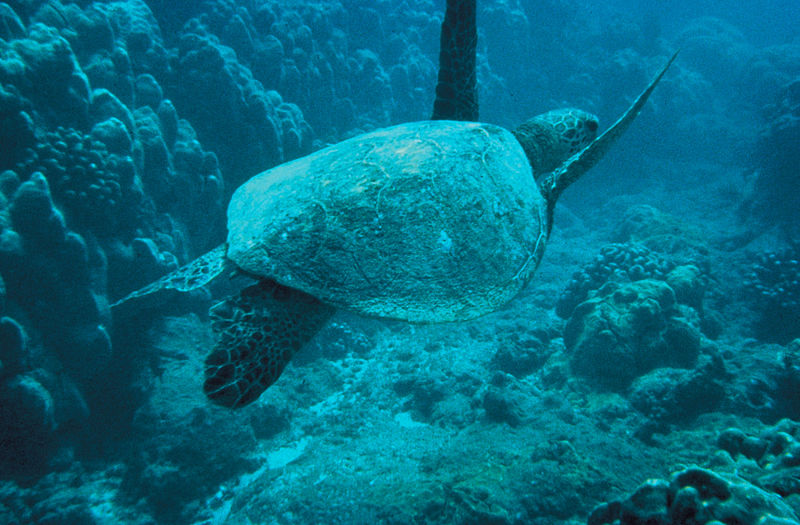Marine Turtle Conservation Act, a Sea Turtle Triumph
The Ocean Conservancy has worked successfully to ensure the recent passage of the Marine Turtle Conservation Act (H.R.3378), in the House of Representatives and the Senate. Championed by Maryland Congressman Wayne Gilchrest (R-1st), the bi-partisan bill authorizes $5 million a year for international conservation projects protecting nesting sea turtles and their habitat, and will help to thwart illegal trade in sea turtle shell, meat and eggs. A similar bill passed the Senate in October of 2003. The bill now goes to President Bush to sign into law.
Because sea turtles live a very long time, mature late, and move through the waters of many nations in their lifetimes, they are often victims of overexploitation. The need for international protection is urgent. Six of the world’s seven sea turtle species are listed under the U.S. Endangered Species Act, including the 1,000-plus pound leatherback, one of the world’s largest reptiles.
“This bill is a triumph for sea turtles,” said Marydele Donnelly, a sea turtle biologist with The Ocean Conservancy who testified before Congress in April in support of the legislation. “From Africa to Asia to Latin America, dedicated biologists and community activists are working under difficult and dangerous conditions to save sea turtles from extinction. Tonight, on beaches around the world, poachers armed with machetes will butcher turtles coming ashore to nest. Some of these animals will be 30-40 year old animals nesting for the very first time. The bill will provide funding to stop this killing,” she said.
The Ocean Conservancy lauds Congressman Gilchrest for sponsoring the Marine Turtle Conservation Act, which is key to saving these imperiled and magnificent species.
“H.R.3378 will not itself stop the slaughter of sea turtles or their eggs, but it sends a powerful message to the world community that the United States strongly supports their conservation and will not allow these species to disappear forever,” said Congressman Gilchrest.
The Marine Turtle Conservation Act will foster long-term research and protection of nesting populations, promote involvement and education of local communities in conservation, provide alternatives to egg and turtle harvesting, and help enforce existing laws to protect sea turtles.
Continued Donnelly, “Like the other multinational species funds for elephants, great apes, and tigers, this bill will attract private and international support to leverage U.S. monies. Since 1991, Congress has appropriated $25 million to support anti-poaching activities, implement conservation plans and monitor at-risk populations; these funds have attracted an additional $80 million. In order to create such beneficial programs for sea turtles, the House and Senate must expeditiously resolve their small differences so that the bill can be signed into law.”
The Marine Turtle Conservation Act authorizes funding for international programs through 2008.




